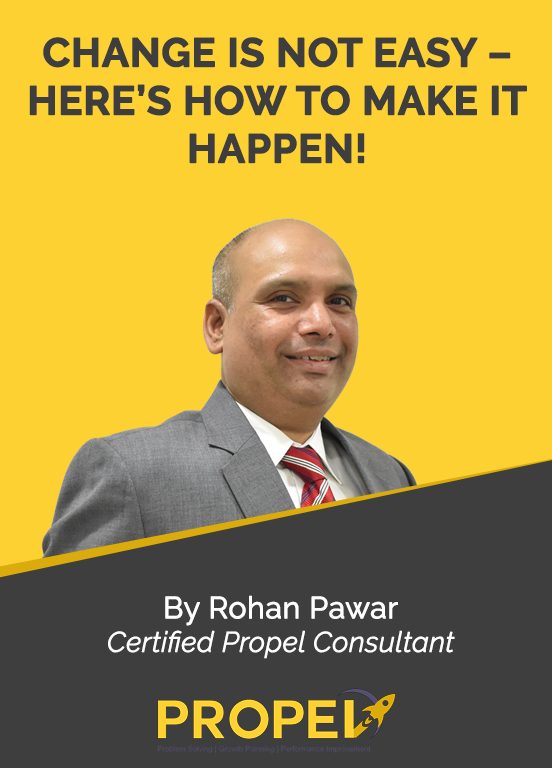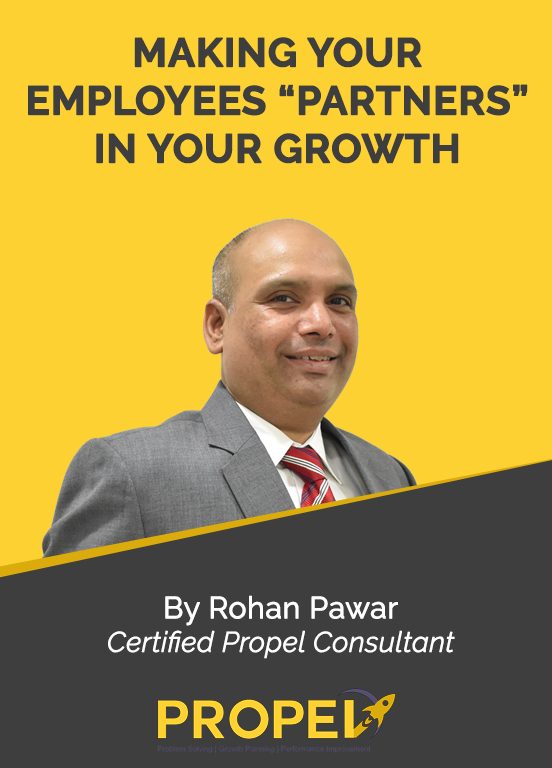The idea is not to live forever, it is to create something that will.
– Andy Warhol
Every business owner in this world has this inherent desire to turn his business into a legacy. Countless empires have been constructed which have been run by a number of generations spinning multi-million dollar market caps.
While enormous success stories exist of family owned businesses, there are several other not-so-happy stories too. With the fast-paced technological advancements, the gap between generations, especially Generation Z, is sizing large. Siblings at a gap of 10 years don’t get along, leave alone major rifts between fathers and sons.
In our journey of improving businesses, we have had majority of projects with family-run businesses. And in most cases, there is a tremendous gap in the thought-processes of fathers and sons. This often becomes a major road-block in our speed or direction of improvement too.
In most cases, fathers are unable to comprehend the systems we want to introduce. They get unsettled with the ‘change’ that is required to be brought about across the organisation. Not to mention, that because they are unable to comprehend what we envisage, they find us expensive too! It’s common for all our CPCs (Certified Propel Consultants) to face awkward statements by fathers like: “I can tell you, this will not work!”
Not to take away, that the fathers, who have built the business on their own from scratch, have no dearth of experience and their words of wisdom hold a lot of weightage. They maybe technologically backward, but technically, they are very sound!
The sons, on the other hand, get edgy and frustrated with doubts and questions from their fathers and often an argument ensues too easily. All of this leads to an unhealthy environment in the organization and there’s an air of anxiety among employees.
The thing to keep in mind is that no two individuals think in the same manner. We all are bound to have difference of opinions any ways. This issue just seems to magnify between two generations, between father and son.
As an external entity to the business and having faced numerous such instances, we more or less have a grip to handle such situations.
Like everything in the universe, the key is to strike a ‘balance’. Rich experience is as precious as newer ideas and innovations. The grey hair and the fresh blood must accept each other’s strengths and weaknesses and come to conclusions. And at times, they must agree to disagree.
Easier said than done, you’d say. But no, there is a way out. Here are some specific steps to help ease this out:
- We caution CPCs to not intervene in the middle of the argument. That’s the first thing. As otherwise, matters would only flare up. We thus allow them to vent out and settle down.
- Next our CPCs use ‘coaching skills’ that they are trained on during the Propel Certification Program. Theysit the father and son down individually and hear them out. Understand what they are really meaning to say.
- CPCs then take a buy-in from each person that they will agree to what the CPCs recommend. This is mostly agreed to as CPC is always trusted for their unbiased advice which they know will not be emotion-driven and will be in favour of the business.
- Next, CPCs write down points of each party (the father and the son), and then arrive at a logical decision.
- The advice is shared with both father and son and due course is taken.
Other than the above method, which is more corrective than preventive in nature, one key advice we often give is to have the father and son head independent departments. Example, the father would be the key decision-maker for Purchases and Inventory and the son could look into Sales and Operations. Father could look at HR and son could look into Accounts or otherwise. Obviously, the business as a whole is inter-linked and there are dependencies amongst departments, however, dividing key functions like this, at least gives each entity the autonomy to make all internal department decisions without any interference or objections from the other person.
In this case, the father and son must both allow each other to give ideas or suggest something, however, final decision would always be made by the function head.
Undoubtedly, to drive this well one needs a process. Weekly department reviews must be conducted based on objective reports. Half the battle is won here as then, most discussions are based on numbers and not feelings or assumptions. Both generations must thus, trust the process.
While these are practical solutions and good to sum up this topic, I would luv to add my two cents from my observation of 30 years.
A very important influencing factor between generation gaps goes back to how the father and son have shared their relationship from the start.
Has the father been a good friend to the son? Has he given a listening ear? How much of discipline was driven? While the father made it big the hard way, did he get carried away and fulfil every demand of the son at the drop of a hat? From what age was the son involved in understanding the business? What picture did the father always give to the son of the business? How much time did the father give to the father-son relationship? Often, fathers are so busy working hard and building the business for the good of the family, that they are not able to give sufficient time to the family.
This is not to say that we blame the father for what the son is and how he behaves. The point I’m driving is that value system does go a long way in deciding the father-son relationship.
With this we are sure to witness Gen Z of this world continue to carry the legacy of many healthy and prosperous family-run businesses.
Keep Propelling!








